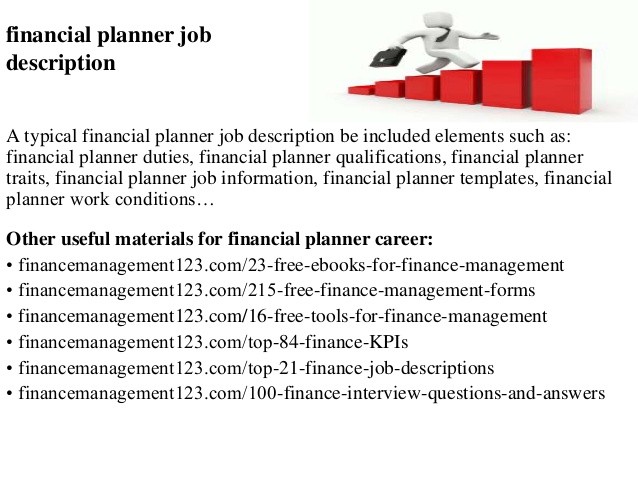Financial Advisor Education Requirements and Career Info
Post on: 12 Апрель, 2015 No Comment

Learn about the education and preparation needed to become a financial advisor. Get an overview of the requirements — including job duties, degree programs and certification — to find out if this career is right for you.
Essential Information
Source:*U.S. Bureau of Labor Statistics
Educational Requirements to Become a Financial Advisor
A financial advisor may also be called a financial planner. While there may be no official requirements for financial advisors, most employers prefer those who have a college education. Some colleges and universities offer undergraduate and graduate degree programs in financial advising. Degrees in business, accounting or finance are also recommended for those entering this field.
Coursework in financial advising programs often includes investing tactics, retirement planning and insurance. Students should take advanced math courses, as well as classes in economics and interpersonal relations. Many graduate programs offer internships at banks and other financial firms where students can gain valuable real-life experience.
Certificate programs in financial advising are available for those who already hold a degree. These programs are offered online, on-campus or through professional workshops. Options for financial advising certificate programs can include risk management, tax planning and employee benefits.
Career Information
Career placement and advancement opportunities for advisors can vary greatly. Some financial advisors are self-employed, operating their own firms or working as personal consultants. Others work at brokerage firms or banks, where they earn a salary and may receive performance bonuses.
Becoming a Certified Financial Planner (CFP) is a good way to earn professional credentials and expand advancement opportunities. Certification is offered by the Certified Financial Planner Board of Standards (www.cfp.net ) to advisors with professional experience in their field. Certification prerequisites include three years of experience, a bachelor’s degree and passing the board’s examination.
Besides certification, many advisors advance their careers by specializing in certain financial areas, such as real estate, securities, estate planning and insurance. Those who do specialize tend to earn more than advisors who offer general services. According to the U.S. Bureau of Labor Statistics (BLS), the overall average salary for personal financial advisors in 2013 was $99,920. Advisors who specialized in securities and commodities contracts earned a mean annual salary of $104,900, while advisors who worked in the accounting, tax preparation, bookkeeping and payroll services industry averaged $90,460 a year (www.bls.gov ).
Depending on state requirements, some financial advisors may be required to obtain some form of licensure. Advisers who buy or sell various commodities such as stocks, bonds and securities on the behalf of their clients may also need licenses. Those that sell insurance are usually required to obtain licensing or register with their state of residence.














